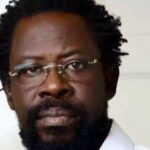Eminent Yoruba leaders, including the President-General of the Yoruba World Congress (YWC), Professor Banji Akintoye; Afenifere chieftain, Pa Ayo Adebanjo; and pro-democracy crusader, Archbishop Ayo Ladigbolu, announced on Sunday that they have concluded plans to mark the 134 years anniversary of the end of the Kiriji War.
The Kiriji War, also known as the Ekitiparapo War, was a 16-year-long civil war among the Yoruba people, where all the sub-ethnic groups either supported the Ibadan or the Ekiti.
The celebration will start at Okemesi, Ekiti State, and Imesi Ile, Osun State, where the war started and Igbajo, Osun State, where the peace treaty that marked the end of the war was signed.
On September 23, 2020, the stakeholders will converge on the YWC Secretariat, Ibadan, Oyo State, to, according to the leaders, commemorate the war “in a bid to reawaken the consciousness of the Yoruba sons and daughters to the history and culture of the Yoruba nation.”
The Ooni of Ife, Oba Enitan Adeyeye Ogunwusi; Alaafin of Oyo, Oba Lamidi Adeyemi; Soun of Ogbomoso, Oba Jimoh Oladunni Oyewumi; and the Olubadan of Ibadan, Oba Saliu Adetunji, have been slated to address the Yoruba people at the occasion.
Historically, the war started following an attempt by the Ekiti to halt the expansive efforts of the Ibadan city-state, which attempted to replace the Oyo Empire as the dominant region in Yorubaland.
In addition, the Ibadan wanted a unified Yoruba nation similar to that of the Oyo Empire, while the Ekiti wanted a loose confederation of cities that had existed in the Ekiti region.
The Ibadan warriors were led by the Aare Ona Kakanfo, Obadake Latosa, the military commander-in-chief who had the support of the people of Modakeke, Offa and Oyo, while the Ekiti Parapo, led by Fabunmi from Oke-Mesi, and later supported by Saraibi Ogedengbe, the Balogun of Ijeshaland, was supported by soldiers from Ijebu, Ife, Egba, Akoko, Igbomina, Ilorin and Kabba.
The war came to an end on September 23, 1886, which marked the beginning of the unification of the Yorubaland as one.
Organisers of the Kiriji War Anniversary said Yoruba elders had met and agreed that the September 23 day that the Kiriji War ended would henceforth be celebrated as the Yoruba people’s Day.
Architect George Akinola, who spoke with journalists on behalf of the conveners, said the two-day commemoration was aimed at uniting the people of Yorubaland towards achieving prosperity and development.
He urged all Yoruba sons and daughters worldwide to make their presence felt at the events, physically or morally.

 Join Daily Trust WhatsApp Community For Quick Access To News and Happenings Around You.
Join Daily Trust WhatsApp Community For Quick Access To News and Happenings Around You.


